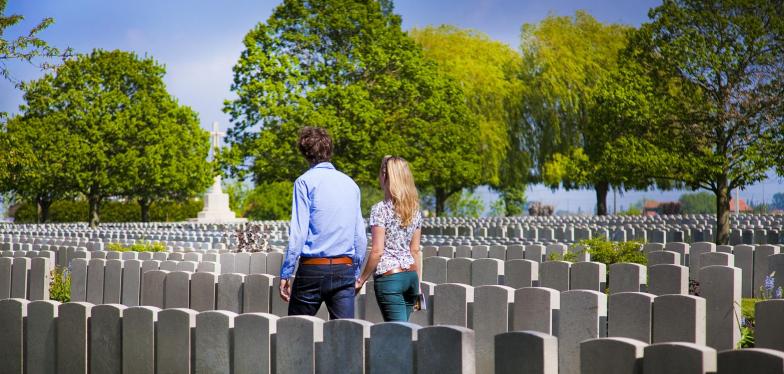WWI commemoration attracts large numbers of tourists
In 2014, the province of West Flanders welcomed nearly 800,000 tourists who came to commemorate the First World War, nearly double the number that came in 2013. In the second half of the year, the increase in visitors was especially spectacular. The most obvious reason for this is the start of the memorial ceremonies and the huge media attention that surrounded them. October and November are traditionally the busiest months in any case.

The Westhoek made sure it was well prepared for a large influx of tourists by investing heavily in opening up WWI heritage sites in the region for tourists. Nevertheless, the final number of visitors exceeded all expectations. Special investments were made in around 5 strategic projects, including the renovation of the In Flanders Fields Museum, the Museum on the Yser and the Memorial Museum Passchendaele. Furthermore, new welcome areas were created for burial sites in Poperinge and in the Western Front Centre in Nieuwpoort.
Not only the big, classic tourist attractions, such as the In Flanders Fields Museum, attracted more tourists, all of the memorial sites experienced a sharp increase in the number of visitors. The Trench of Death in Diksmuide on the Yser had the biggest increase in visitors. This was no coincidence in the light of the fact that it was the hundredth anniversary of the flooding of the Yser river. The Tyne Cot cemetery in Zonnebeke also proved to be one of the top tourist attractions in terms of visitor numbers.
Even more investments are being made in 2015 which will lead to 3 new non-staffed welcome points in the Ypres area, and lots of development works are under way for 12 new 14-18 cycle routes. Moreover, there are also, once again, a great many commemorative ceremonies and activities being organised this year. The commemoration of the gas attacks and the Second Battle of Ypres in April, the 30,000th Last Post on 9 July and the Talbot House’s one hundredth birthday in December are a small handful of the commemorations that are taking place. The special commemorative activities will be continuing until the end of 2018, but no one in the Westhoek will ever forget the Great War.